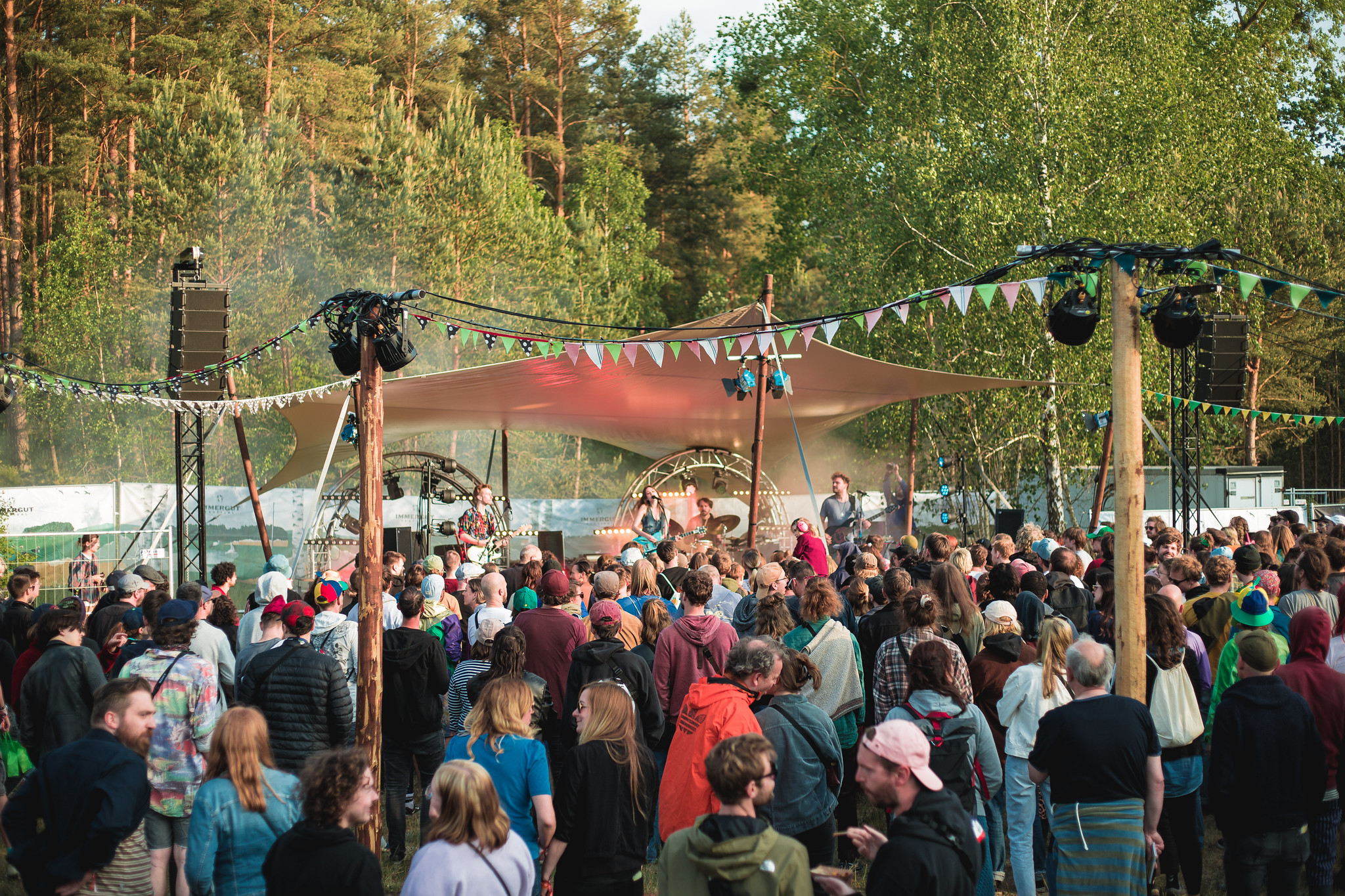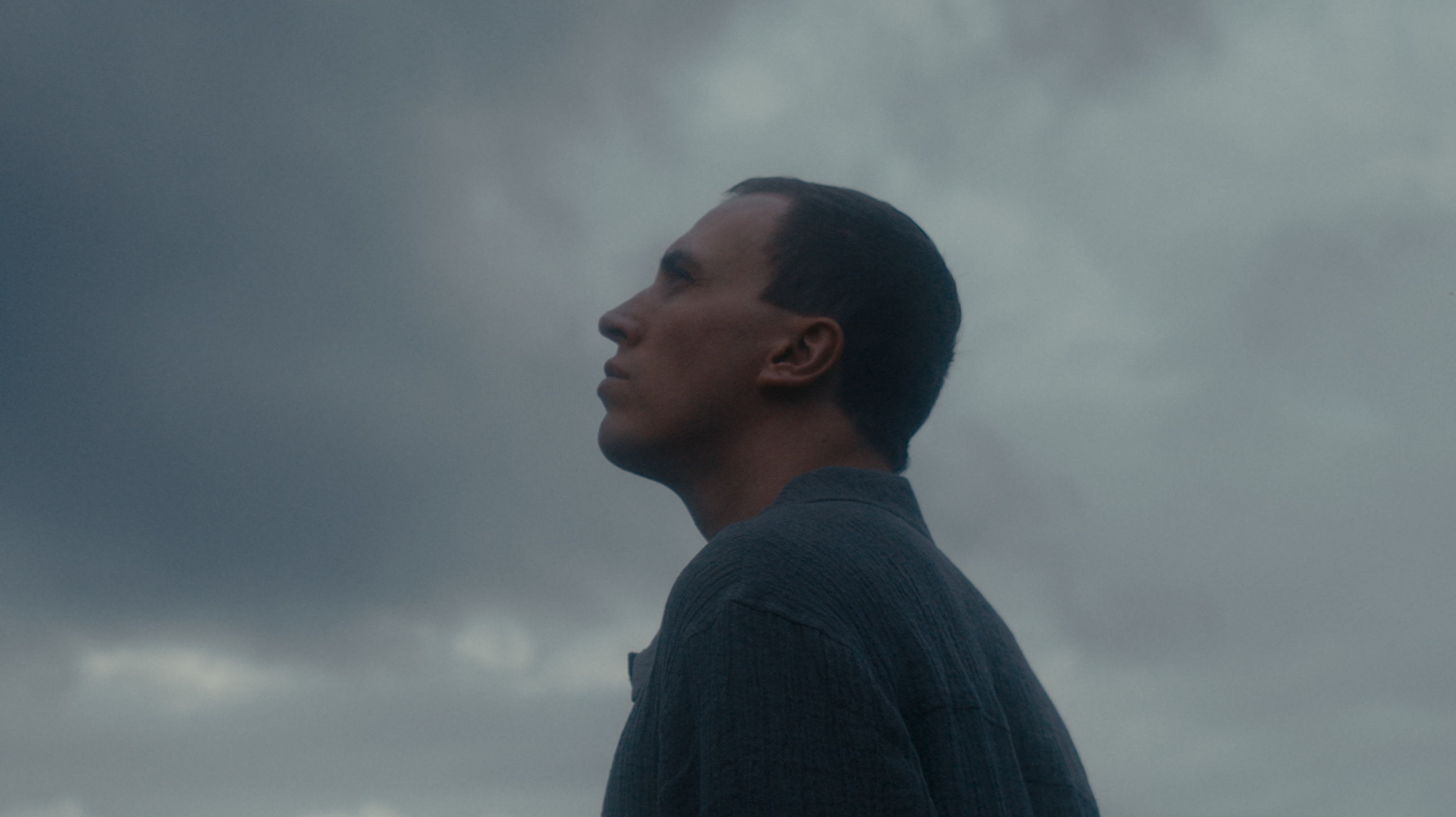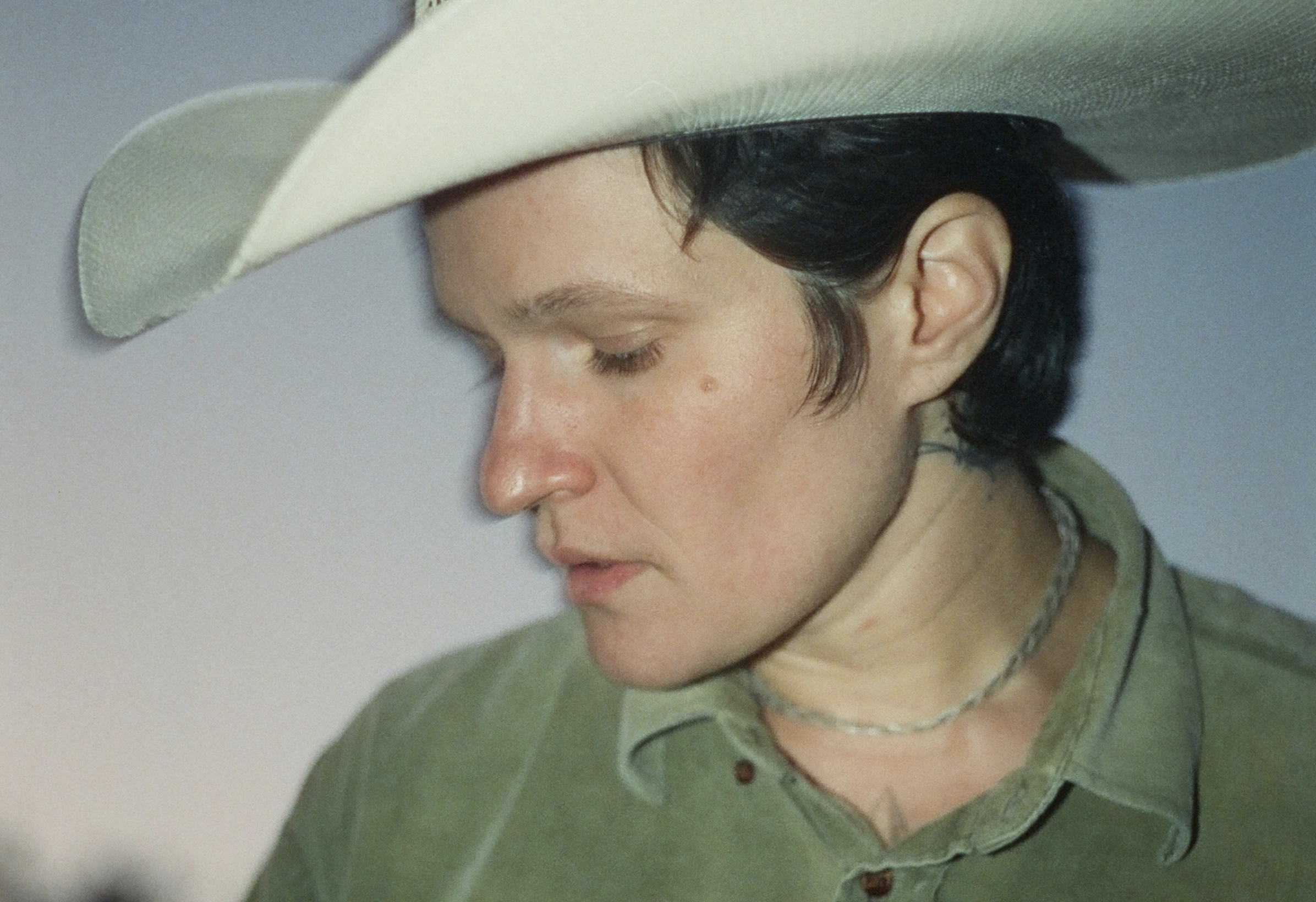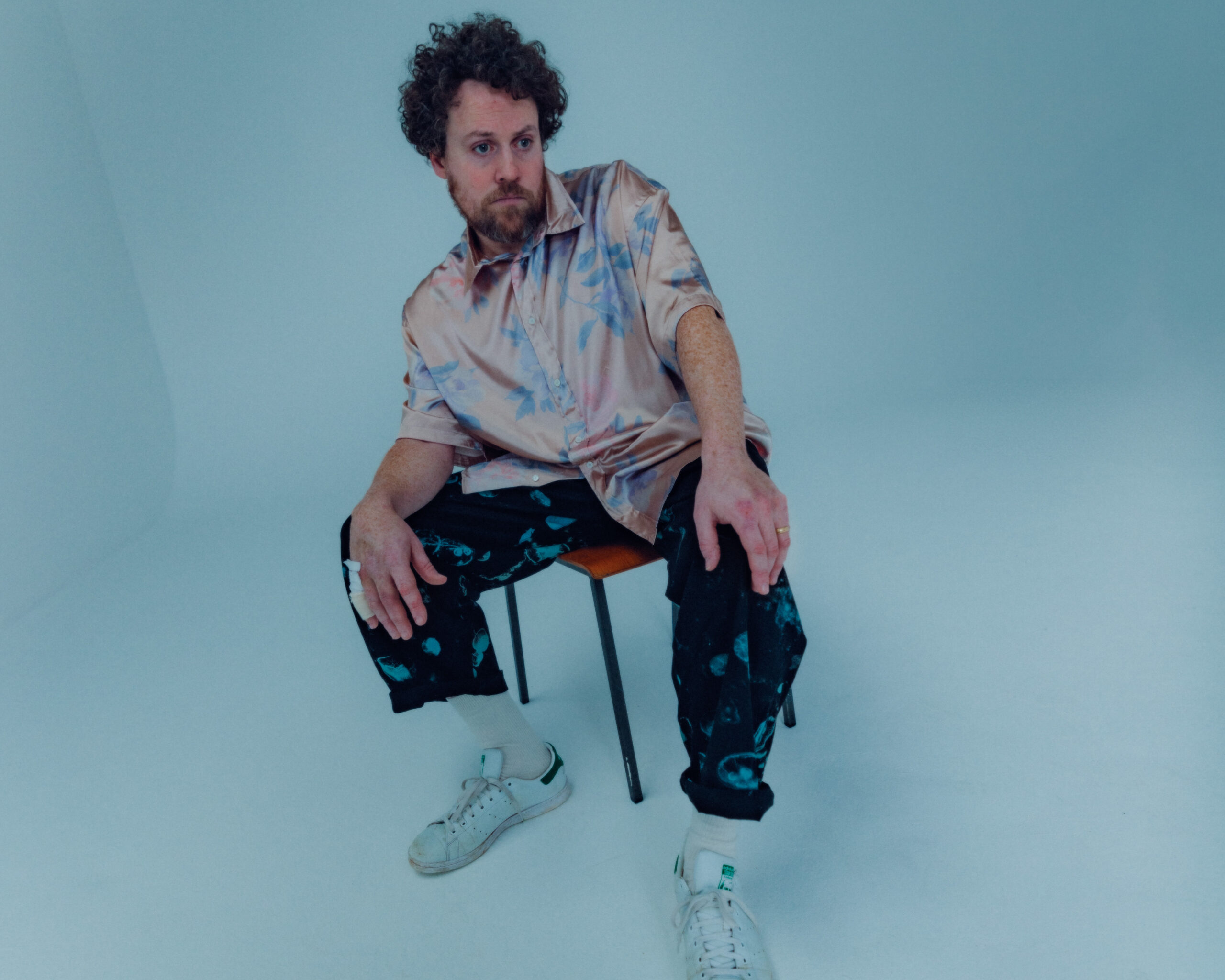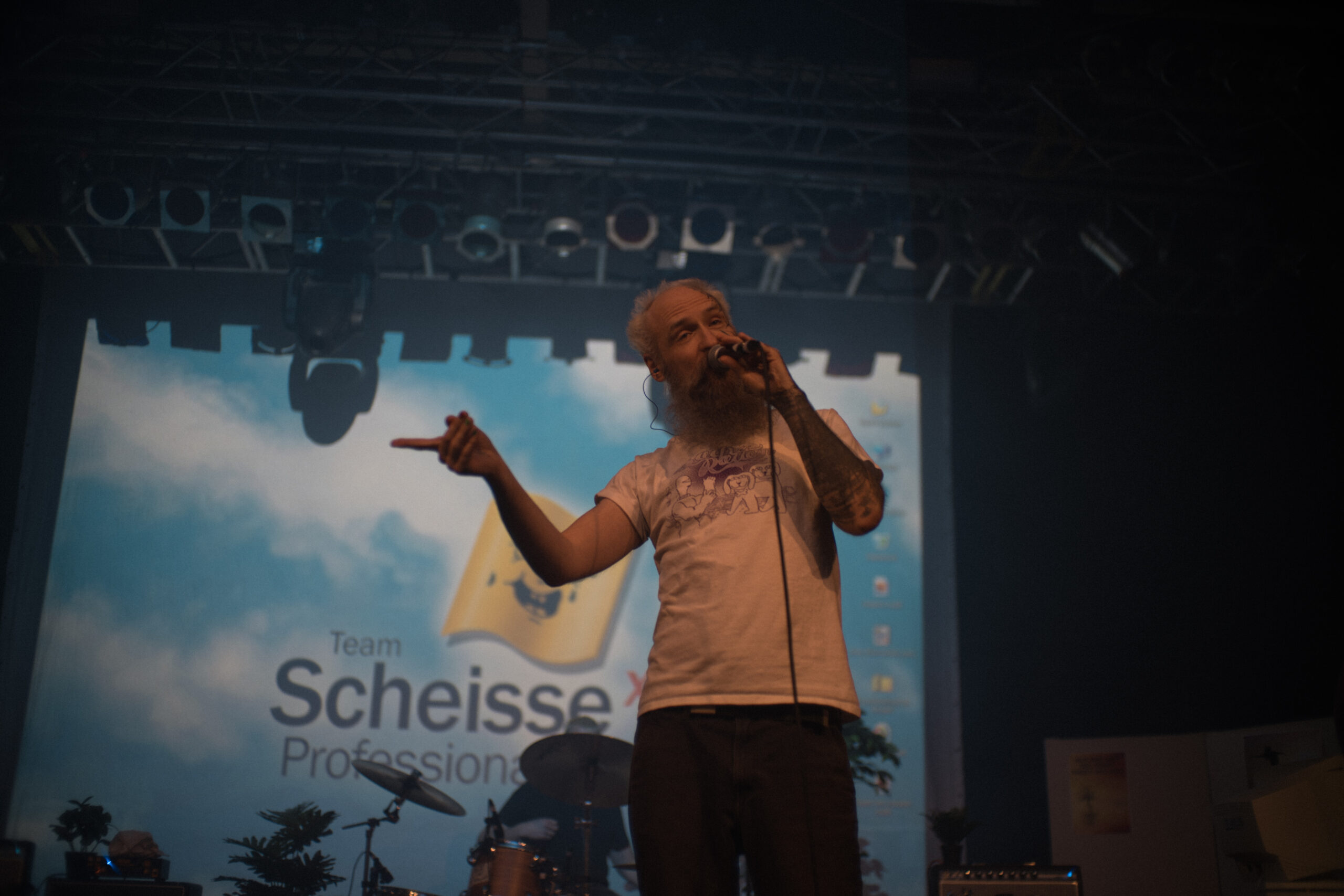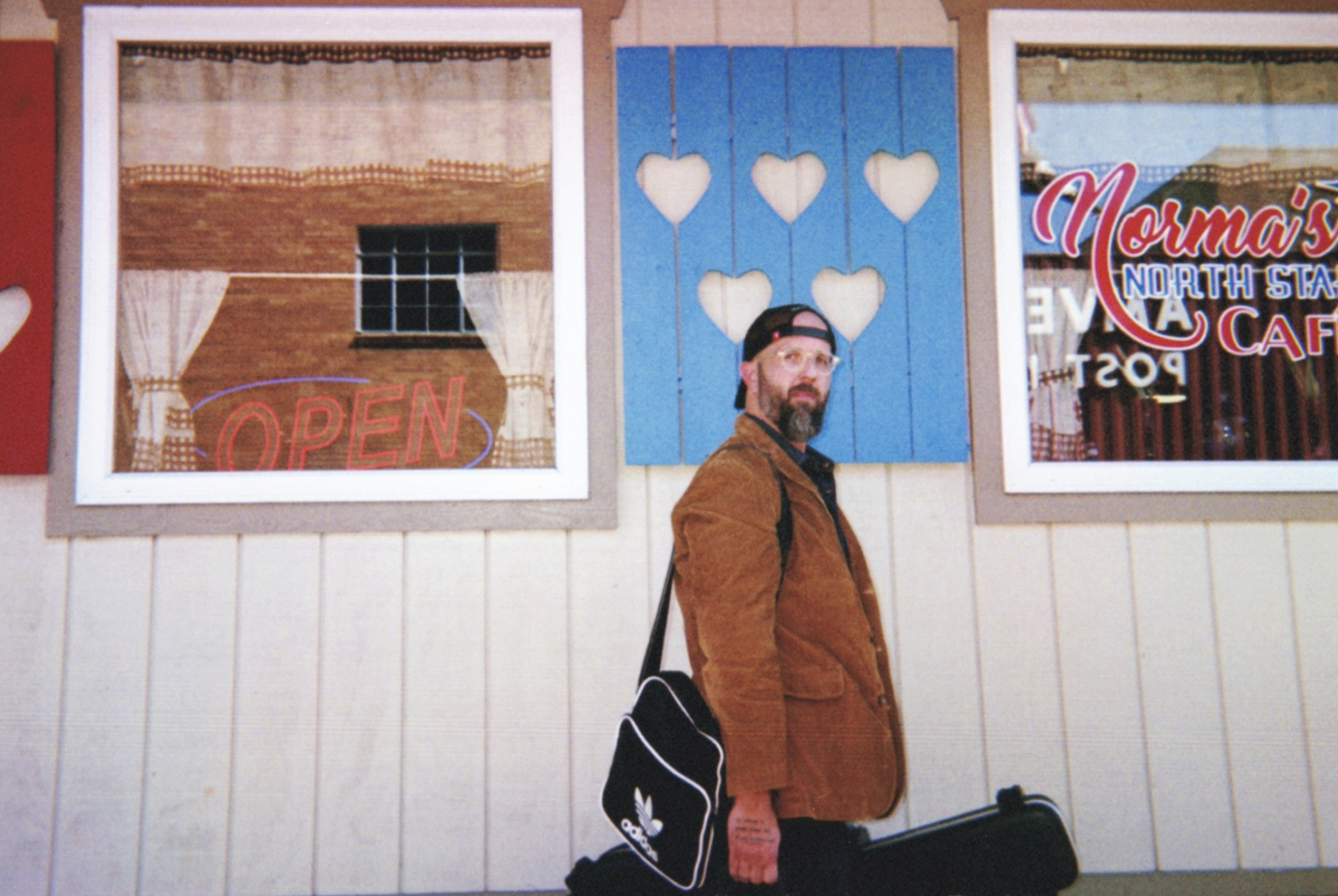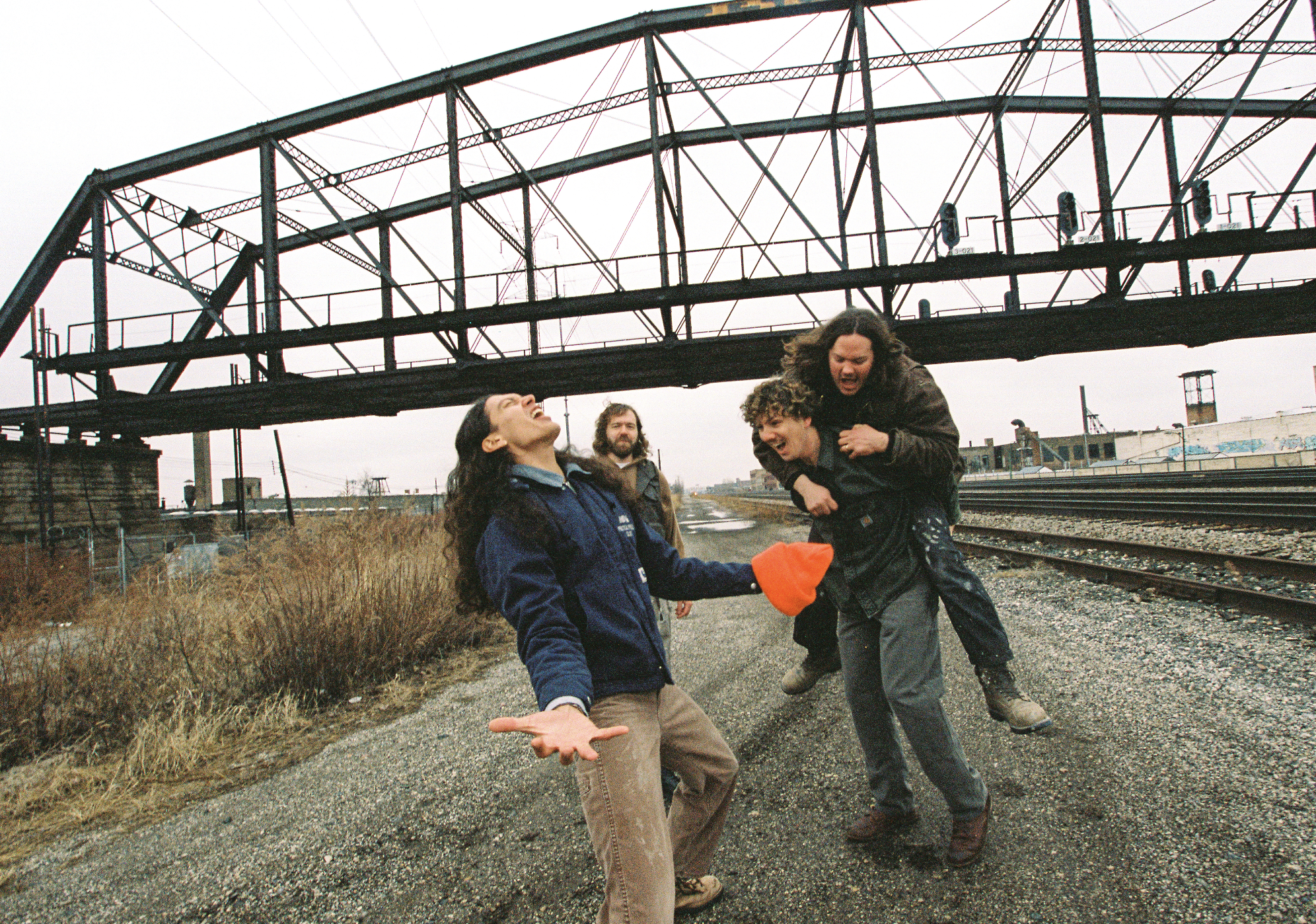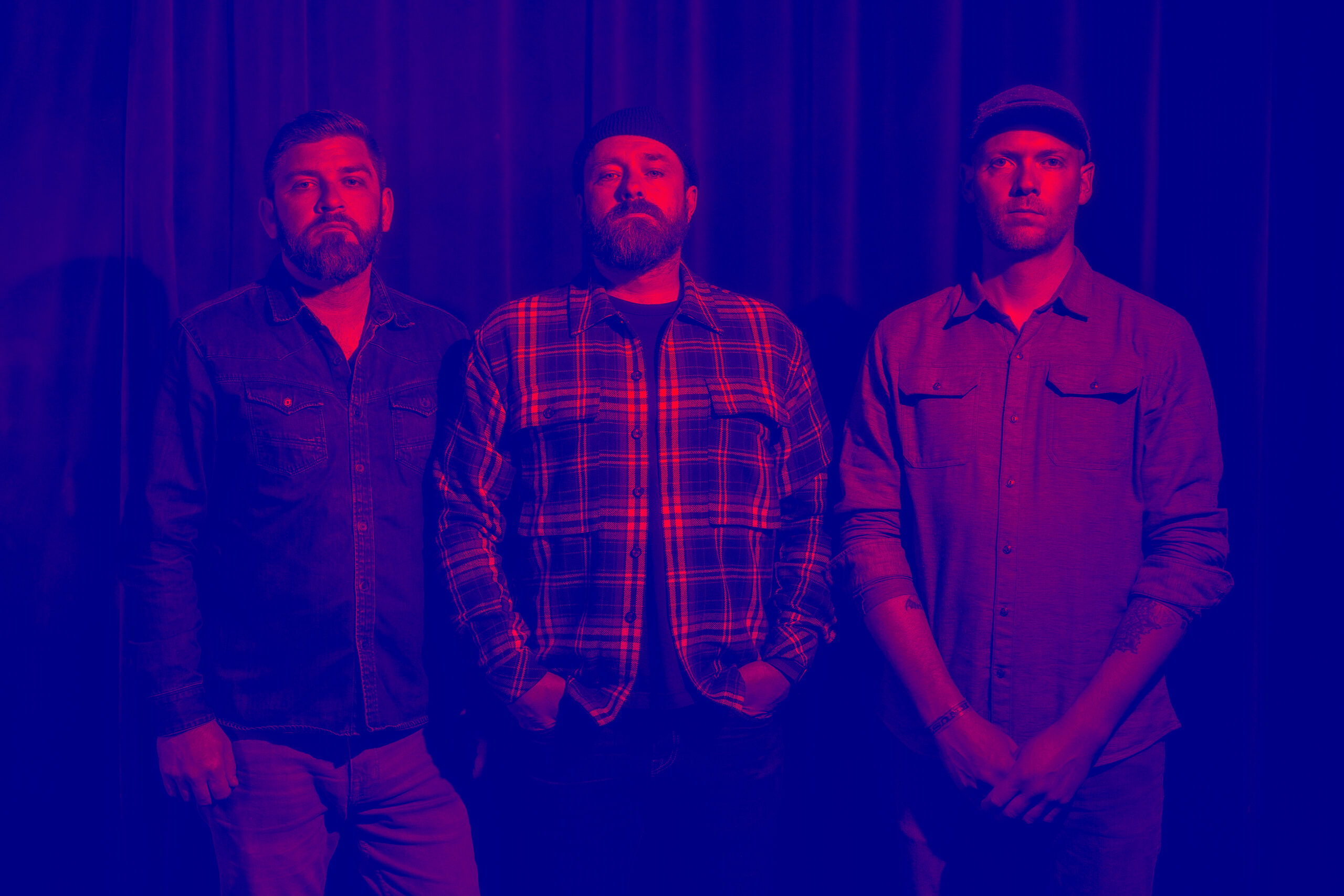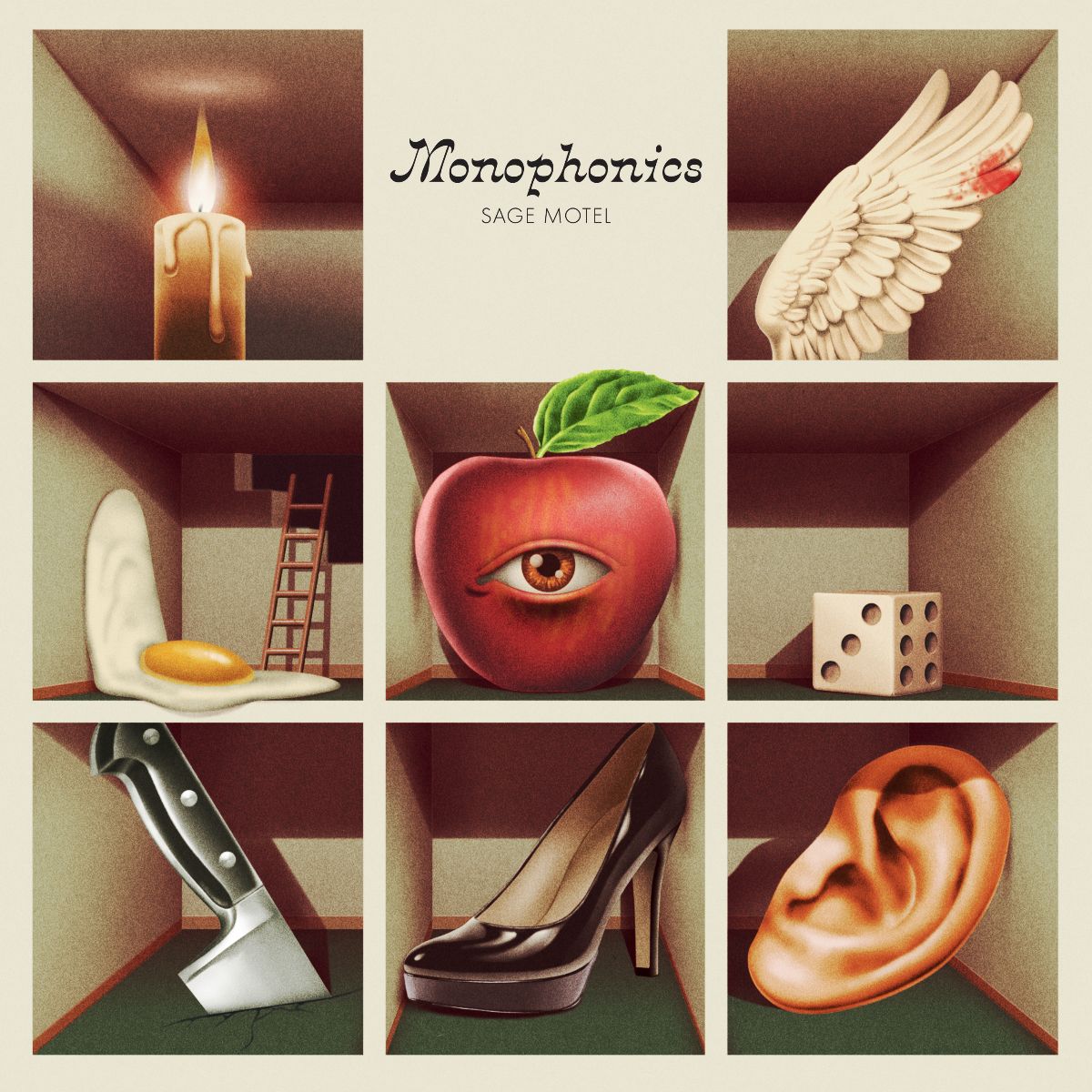 Foto-© Sebastian Madej
Foto-© Sebastian Madej
Die stetig veröffentlichende und tourende Psych-Soul-Band Monophonics, sowie ihr auch solo umtriebige Frontmann, Produzent und Sänger Kelly Finnigan haben sich in den letzten Jahren den Ruf als eine der einflussreichsten Bands ihrer US-amerikanischen Heimat erarbeitet. Und diese Geschichte führt auch das just erschienene neue Album Sage Motel weiter – das fünfte Studioalbum der Monophonics seit 2012! Im Mittelpunkt des Albums steht das namensgebende Etablissement, das der (teilweise erfundenen) Legende zufolge in 1940er Jahren als malerische Raststätte für Reisende und Trucker begann, sich in den 1960er- und 1970er-Jahren zu einem Treffpunkt der Bohemiens entwickelte, um nach dem Ausbleiben des Geldes als abgehalftertes Stundenhotel sein Schicksal zu fristen – bis nun die Band die Wiedereröffnung ausrief und mit dem neuen Album die Geschichten der Gäste in den Mittelpunkt setzt. Ein Ort, an dem große Träume und gebrochene Herzen leben, an dem Menschen ankommen, ohne jemals zu wissen, wie sie dorthin gelangt sind. Es ist ein Ort, an dem sich Menschen an einem Scheideweg ihres Lebens wiederfinden. So wie jedes Hotel eigentlich…wir sprachen mit dem allgegenwärtigen Tausendsassa Kelly Finnigan darüber, über seinen eigenen Werdegang, die aktuelle Soul-Renaissance und ihren Signature-Sound – unser Interview!
Hotels wie Motels sind ja seltsame anonyme Räumlichkeiten, die zumeist überall gleich aussehen und es einem dementsprechend schwer machen, dass man einem Urlaubsziel während einen Hotel-Aufenthalt wirklich emotional näher kommt – was vielleicht die Schicksale von uns allen Reisenden vor diesem farblosen Hintergrund noch mehr verstärkt. Denn wir alle sitzen ja im selben Boot, tragen unsere (Problem-) Päckchen umher und gleichen uns dabei in vielem wie ein Ei dem anderen. Finnigan weiß das und nutzt diese gefühlstechnische Andockfläche für seine neuen Songs, vor der halb wirklichen, halb erdachten Kulisse seines Sage Motels: „It’s a real place, it’s in Oakland, but there are some fictional aspects of the story. We have taken a real thing and have added extra intriguing bits to the story, to make it more interesting to recover…I’ve been there and I have driven by so many times and there was always something intriguing about the way it looked, the motel sign and the name Sage Motel – it stuck with me through the years. It always hoped back into my brain. So when we started, I wrote a song, called Sage Motel. Basically what the song is about, is a very straight, normal guy, who lives a very kind of boring life, you know, he get’s up, goes to work, nothing exciting. It’s about him falling in love with a prostitute. It’s about him meeting a woman and developing a physical relationship that really changes his whole view on love and life, because he has never experienced a physical relationship with a woman like that. So he really starts to think: ‚Can I really be with a woman like this, would she be with me‘ It’s basically a song about falling in lust.“
 Von dort an ließ Finnigan beim Schreiben einfach seiner Fantasie freien Lauf: „So then from there my brain just started wondering. What if I told, that’s happening in one room in the motel, what if I told another story in a room next door. And being in a band, I’ve stayed in lots and lots of hotels and motels and hostels – you start to realize this is a crossroad for people from all around the world, all around the country, all kind of sharing a space and all kind of going through something similar, in the sense of, we have all experienced the ups and downs of life. We’ve all experienced all wonderful things, things to celebrate, be happy about, but also things that are very sad and that we struggle through, that stress us out. We share that. It’s most likely that in a motel or hotel, when you went through every room and talked to all the people, you will have a lot in common with each other.“
Von dort an ließ Finnigan beim Schreiben einfach seiner Fantasie freien Lauf: „So then from there my brain just started wondering. What if I told, that’s happening in one room in the motel, what if I told another story in a room next door. And being in a band, I’ve stayed in lots and lots of hotels and motels and hostels – you start to realize this is a crossroad for people from all around the world, all around the country, all kind of sharing a space and all kind of going through something similar, in the sense of, we have all experienced the ups and downs of life. We’ve all experienced all wonderful things, things to celebrate, be happy about, but also things that are very sad and that we struggle through, that stress us out. We share that. It’s most likely that in a motel or hotel, when you went through every room and talked to all the people, you will have a lot in common with each other.“
Und die Zimmer im Sage Motel sind voller Geschichten und Schicksale: „So in one room you have this guy, who is falling in love with a woman and struggling about it, because obviously it’s her job to make him feel loved and wanted. In the next room there is a business man, who is realizing that he has lost track of his personal life, because he is so worried about money and security and because he is wanting to be successful he is constantly traveling. Because of chasing his dreams, he realizes that he missed out on a complete part of his life, his personal life, his social life, his friends, his love life. You know, all those things that we try and have balance with – and sadly it’s hard to balance for someone who is so motivated of being successful in a certain career. Then in another room we have people falling in love, in another room we have people breaking up, we have people realizing that maybe they are not supposed to be together. They love each other, but this is not a healthy relationship. In another room we have someone realizing that maybe they are not really happy, it’s a song called Broken Boundaries and basically it’s a song about realizing how unhealthy a relationship can be, even with someone like a parent or a sibling or even a best friend. You can start to realize, even though you love these people or you love this person, the relationship might not be the healthiest. So it’s really just a lot of stories, that we all go through. There are things, that we have all experienced, there is nothing crazy, it’s all emotions, that we all deal about as we are all human beings.“

Finnigan selbst ist bei den Monophonics – obwohl es die Band schon vor seiner Ankunft gab – allgegenwärtig, schreibt er doch die Texte, singt, produziert und spielt Keyboard. Diese Rolle stammt letztlich auch daher, dass er selbst, obwohl er Sohn des bekannten Musikers Mike Finnigan ist, nie wirklich Teil einer Band sein wollte, sondern viel mehr für sich die Produzentenrolle spannend fand, war er doch schon früh interessiert an bestimmten Producer-Sounds. „I’m very comfortable having a leading role in the studio, because that was my passion. Way before I was a singer, way before I was in a band or playing keyboards, my mind was already working like that. I had to separate everything and peel the music layer-wise like an onion. So I take being a leader and a producer in the studio very natural. It was more challenging at first, because when I joined the Monophonics were already a band. A much different band, but they were already existing as musicians being in a band and I joined later. So having a band member producing felt a little strange for them, but once they heard the results, I think they began to really trust me and understood that I know what I am doing.“
Ein wichtiger Bestandteil seines Produzenten-Ideals ist dabei, dass man ihn und die Monophonics sound-technisch direkt wiedererkennt: „I’m a big fan of producers. So if you speak about someone like Phil Spector, or Brian Wilson, or even a Beatles record – all those guys for me had a sound….I’m a big fan of having a sound. I also like to believe I could do other things, but I also like having a sound. I like when the people are hearing it and are saying ‚Ah that’s Kelly Finnigan, ah that’s Monophonics‘ – that’s a compliment and shows that I’m doing the right thing.“ Wichtiger Bestandteil ist dabei neben den offensichtlichen Zutaten (gute Musiker, gut klingende Instrumente) eine analoge Produktion auf einer 8-Track-Tape-Machine: „Yes, I live in an oldschool world and take everything in an new school world. Everything starts on an 8-track machine and then I move it into the computer. And then I do horns, strings and vocals in the computer, but I’m still using vintage microphones, two pre-amps, I’m using a lot of old school things before it gets to the computer.“
 Dabei geht’s ihm auch gar nicht darum alte Helden zu kopieren und „alt“ zu klingen – sondern eher Ansetze zu nutzen und ins hier und jetzt zu bringen: „We are not trying to sound old or sit around and ask ourselves: ‚Does this sound old enough‘ We want the people to feel that this is music from 2022, we don’t want to be this time machine band. We make new music and it just evokes a lot of feelings that older music gives you.“ Was natürlich auch super in die aktuelle Welle der Soul-Musik passt, die in verschiedensten Abwandlungen bis hin in den Mainstream wirkt, Celeste sei dank. Die Gründe dafür erklärt sich Finnigan wie folgt: „When soul music came around and was making a difference in the mid-60ties, obviously it was deeply routed in gospel music and the church. Everybody who became a successful soul singer, started off singing in a church or in a church-like group. Sam Cooke, Otis Redding, Wilson Pickett, Aretha Franklin – I mean you can go down the list. So there is that, which is the feeling of emotion. Gospel music is very emotional, you’re talking about your connection to a higher power, to god. And this sense turned into, the higher power was feelings, your heart, love, falling in love, falling out of love, the pain that comes with life, the sorrow, the joys, the ups and the downs really. It’s a bit like with punk rock, where you go like: ‚Oh man, this person is really angry‘ With soul music you feel like: ‚Whatever the person feels, this feeling is like really deep‘ So I think this connects on a human level. And given that soul was like an interesting mixture from rhythm and blues, Rock’n’Roll, gospel music – it’s such a beautiful mix of all these beautiful genres.“ Dass das Anklang im Hier und Jetzt findet, passt natürlich: „It’s one of these things, where every generation just finds a connection and taking it. I’m sure a lot of young people would think: ‚Oh soul music, that’s old music‘ But it’s really just that kind of music that can be given a new feeling and a new approach and a new voice and I think that’s what a lot of bands have done.“
Dabei geht’s ihm auch gar nicht darum alte Helden zu kopieren und „alt“ zu klingen – sondern eher Ansetze zu nutzen und ins hier und jetzt zu bringen: „We are not trying to sound old or sit around and ask ourselves: ‚Does this sound old enough‘ We want the people to feel that this is music from 2022, we don’t want to be this time machine band. We make new music and it just evokes a lot of feelings that older music gives you.“ Was natürlich auch super in die aktuelle Welle der Soul-Musik passt, die in verschiedensten Abwandlungen bis hin in den Mainstream wirkt, Celeste sei dank. Die Gründe dafür erklärt sich Finnigan wie folgt: „When soul music came around and was making a difference in the mid-60ties, obviously it was deeply routed in gospel music and the church. Everybody who became a successful soul singer, started off singing in a church or in a church-like group. Sam Cooke, Otis Redding, Wilson Pickett, Aretha Franklin – I mean you can go down the list. So there is that, which is the feeling of emotion. Gospel music is very emotional, you’re talking about your connection to a higher power, to god. And this sense turned into, the higher power was feelings, your heart, love, falling in love, falling out of love, the pain that comes with life, the sorrow, the joys, the ups and the downs really. It’s a bit like with punk rock, where you go like: ‚Oh man, this person is really angry‘ With soul music you feel like: ‚Whatever the person feels, this feeling is like really deep‘ So I think this connects on a human level. And given that soul was like an interesting mixture from rhythm and blues, Rock’n’Roll, gospel music – it’s such a beautiful mix of all these beautiful genres.“ Dass das Anklang im Hier und Jetzt findet, passt natürlich: „It’s one of these things, where every generation just finds a connection and taking it. I’m sure a lot of young people would think: ‚Oh soul music, that’s old music‘ But it’s really just that kind of music that can be given a new feeling and a new approach and a new voice and I think that’s what a lot of bands have done.“
Während er sich dieses Jahr ganz auf die Monophonics konzentriert, hat Finnigan, der auch als Produzent anderer Bands und Acts tätig ist, nächstes Jahr schon wieder solo Pläne – sein Geheimnis für stetige Kreativität dabei ist: „I’m always trying to remember that feeling when you’re young and starting off creating. Because there is a certain edge to it. When I was young, I wasn’t thinking about money, I wasn’t thinking about fame, I was just thinking about people hearing my music and loving it. And I’m just trying to keep in mind how I was thinking when I was 14, 15, 16, 17, 18, 19, you know? A very young person, creating out of a place of, ‚I don’t know what I’m doing, but I know that I love this‘ and I just wanna do it, because it makes me feel good. I make records for me. I make the records that I like, because music, it makes me feel good. If I’m not doing that, then I’m doing it all wrong. Because if I’m not loving what I’m creating, how can I expect someone else to love it?“


